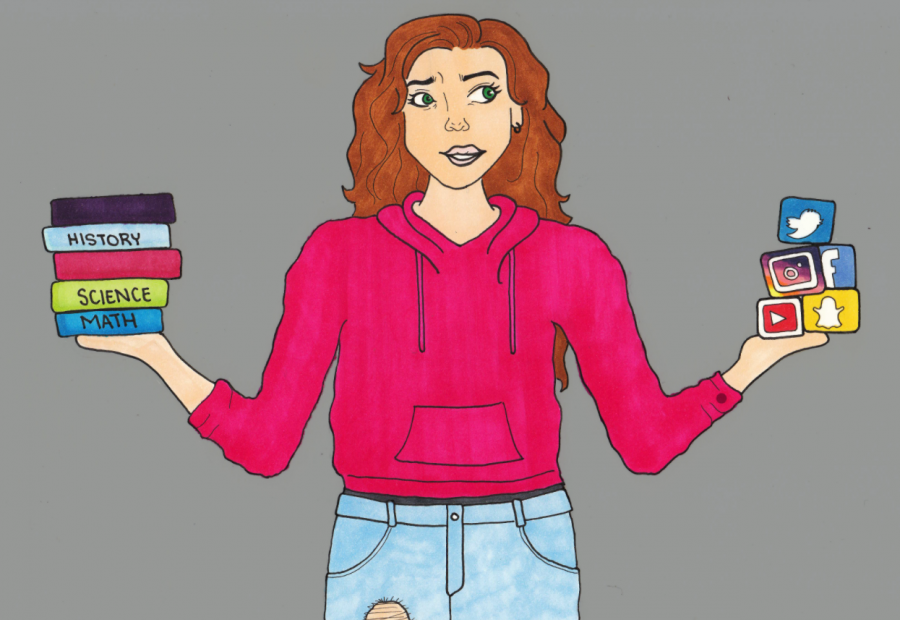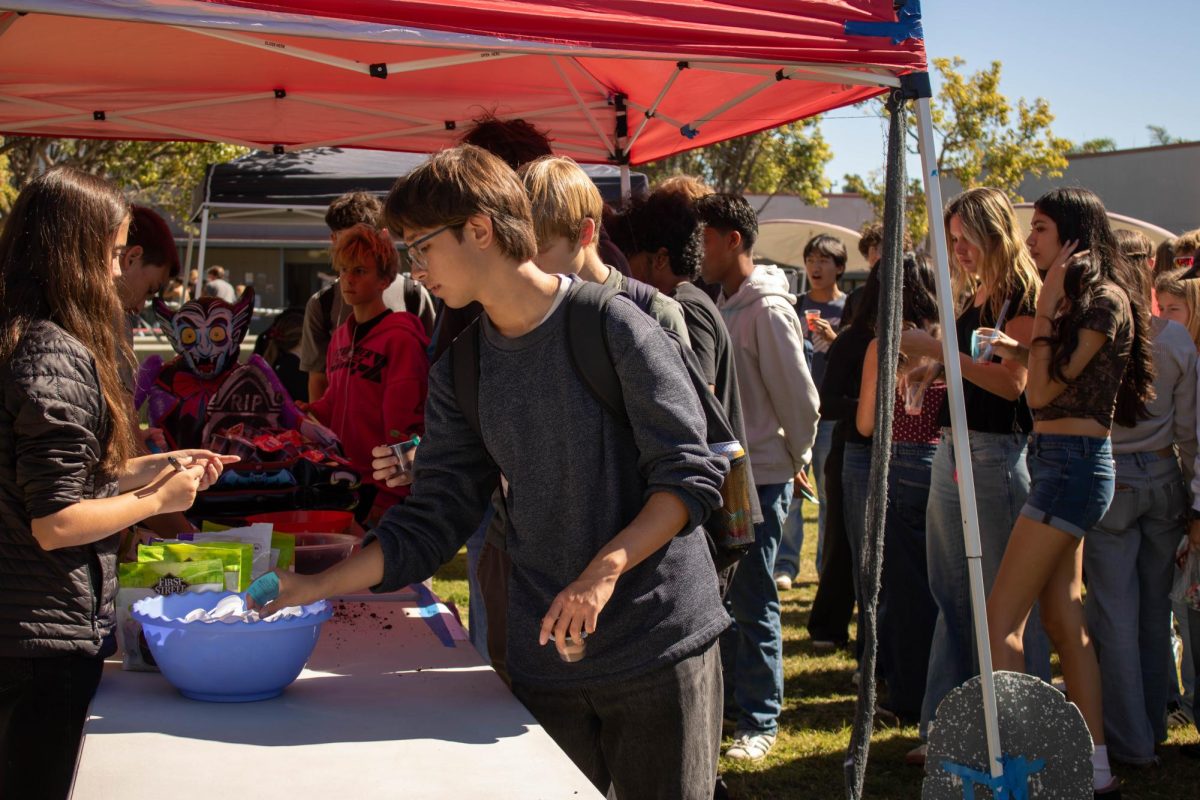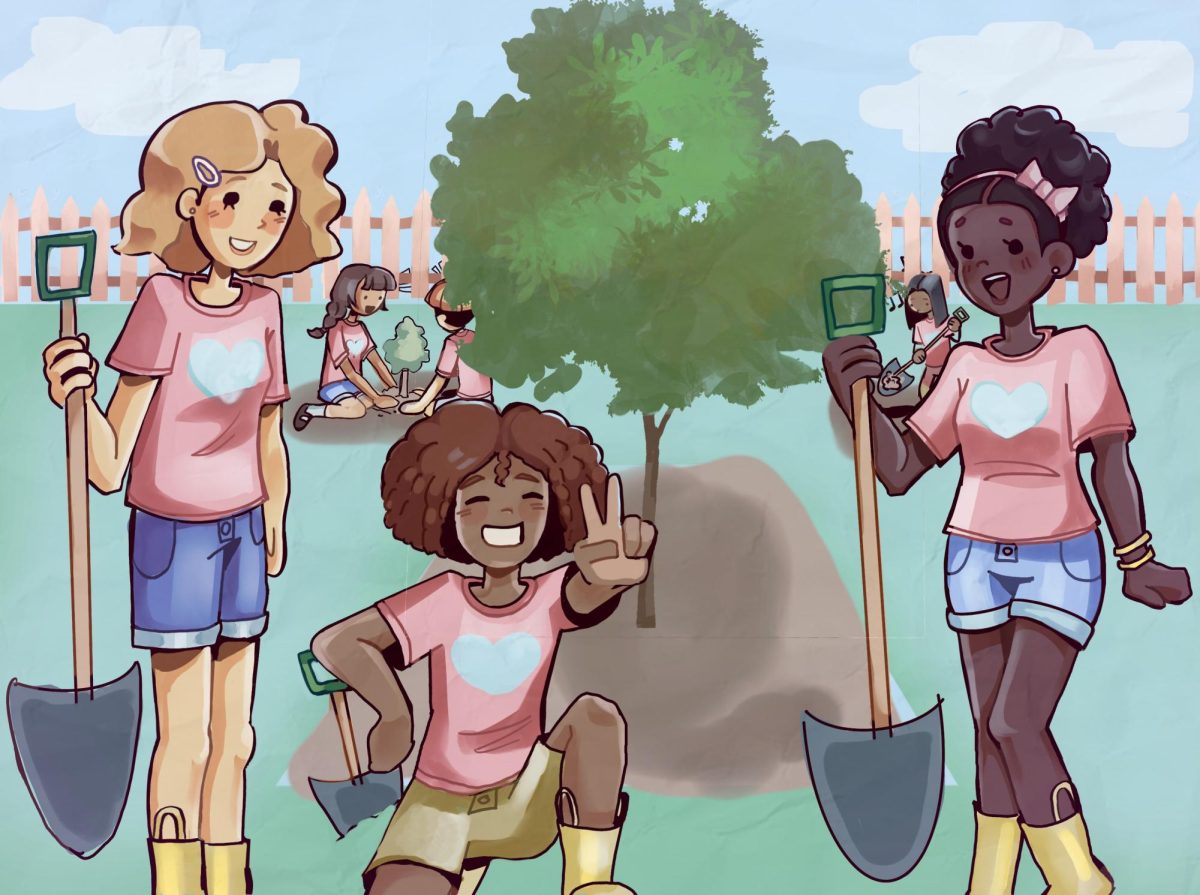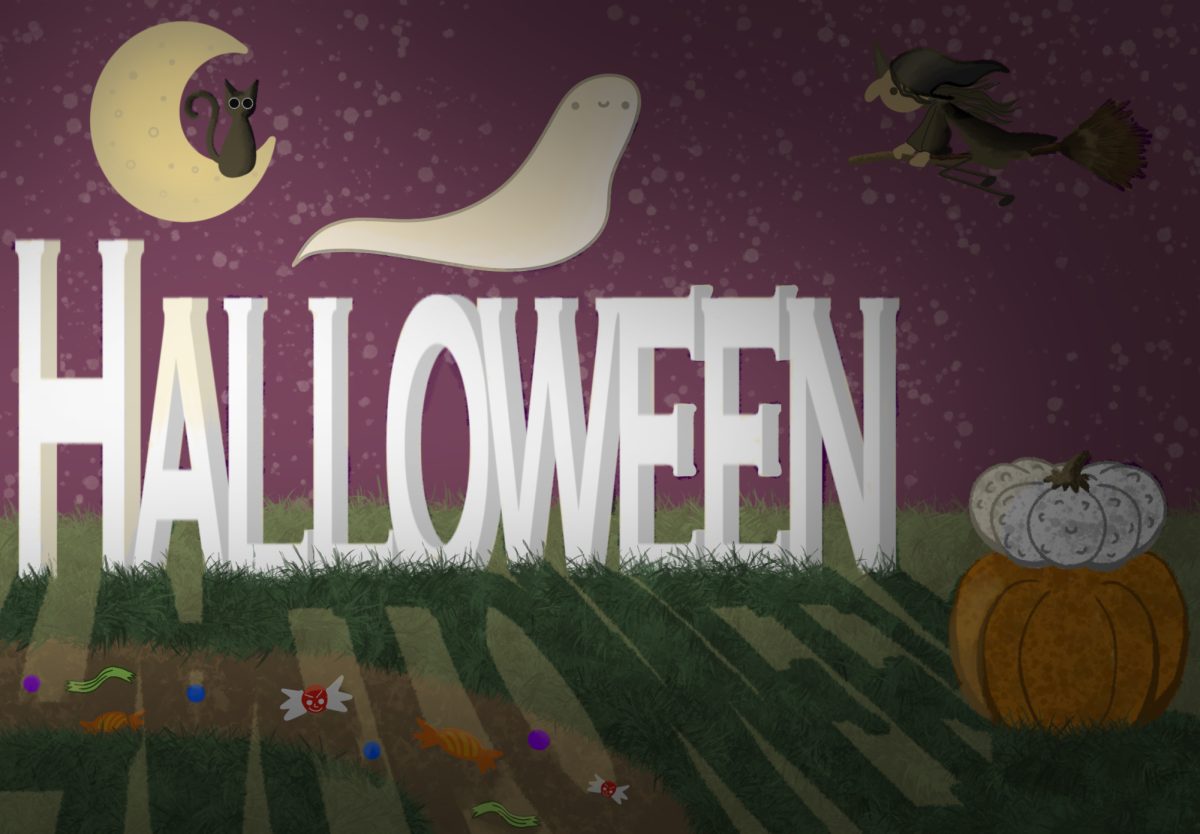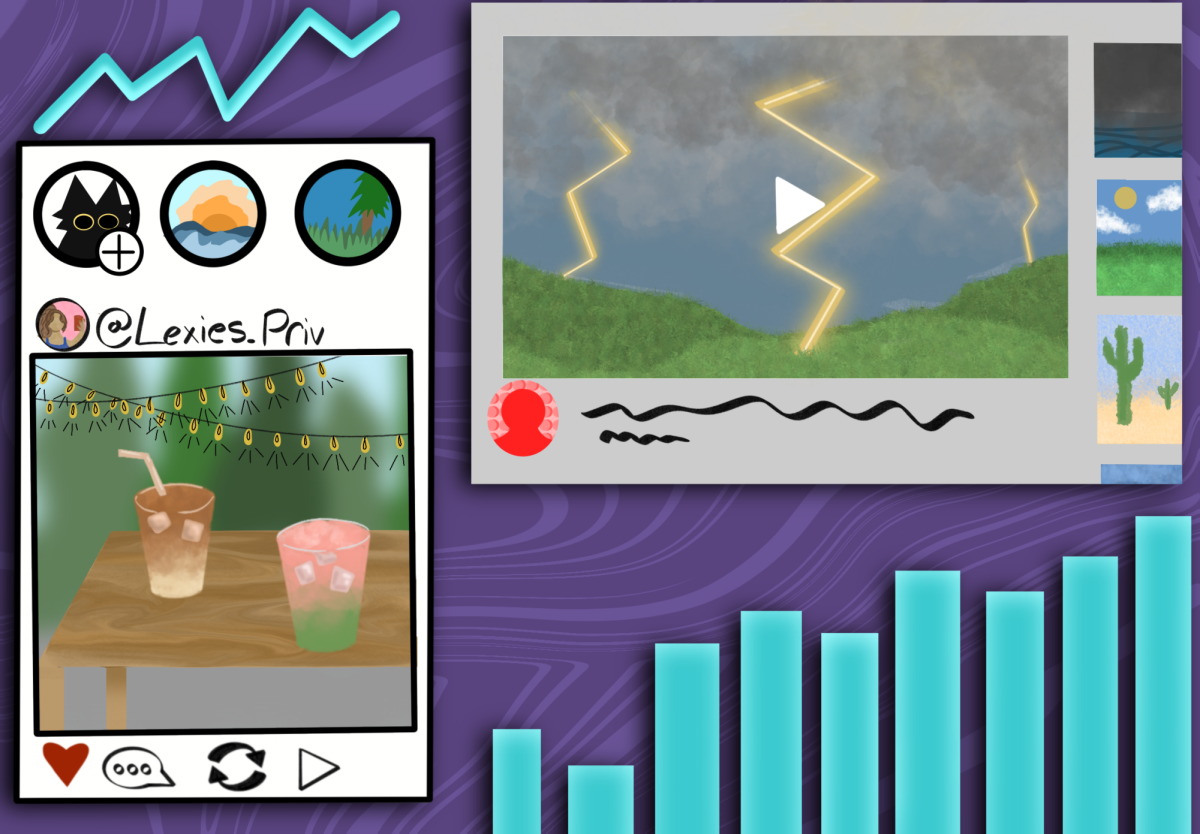Social media can change how students view the world, themselves and others. No longer do only your close friends, teachers and parents influence you, the whole world does. Just by clicking a button, students are able to view anything they want: personal information, what their friends are up to, news, etc. Obviously this power has huge consequences, good and bad.
One effect of social media is peer influence, which impacts what students like or dislike. Peer pressure mostly occurs when hanging out with friends at or outside of school, but social media has allowed peer influence to take place without being face to face.
The age people start using social media can be a factor to how dependent students are with it as they get older. Maya Holbrook ‘18 started using social media around age 10 and now uses Snapchat and Twitter daily; she is constantly checking it throughout the day. In Holbrook’s opinion, social media hasn’t really benefited her life.
“I wish it didn’t exist to be honest because I think if you really have something to say and really something worthwhile to share then you can share it in person,” she said.
It is easy to get caught in social media and by starting at a young age this “addiction” can become much stronger. “I think when [people] start so early they rely on it more and then it’s just a constant thing that they have and they keep on checking it,” Holbrook said.
Nicole Najera ‘20, has had social media since the seventh grade and agrees the younger someone starts using it has an affects how much they use it later on in life. Najera said, “you’re probably going to become addicted to it in the future” and “ have a lot more social media” than someone who joined in high school.
An article on Pew Research Center, “Teens, Social Media & Technology Overview 2015,” wrote that “91 percent of teens go online from mobile devices at least occasionally. Among these ‘mobile teens,’ 94 percent go online daily or more often.”
This dependency and importance creates problems with homework, studying and relationships. Being on social media gives students a viewpoint into everyone’s life. Let’s say your friends go out without telling you. If they post or snap “it makes you feel kind of left out,” Holbrook said.
Tyler Campbell ‘20 doesn’t use any social media other than Youtube but believes it affects how people see others and themselves.
“They see all these ‘perfect’ people on social media and then they kind of judge everyone else thinking that they’re not so perfect or that life just kind of sucks because their life isn’t like all these glamorous people on social media,” he said.
Though social media can cause tension between people, Paul Casas ‘21 mentioned how it also allows “you to make more friends and meet new people.”
One of social media’s biggest effect on students is how it impacts their work habits. Actively using social media throughout the day can distract from a number of responsibilities such as homework, chores or work.
It’s easy to get distracted when a mobile device is right next to you. For example, Casas mentioned, “I’ll try to study or read and I’ll get a Snapchat notification or something and then I’ll have to look at it because it’s tempting.”
Gretchen Scherrei ‘20 agreed social media can be distracting. Even though Scherrei doesn’t have any social media, she’s seen it affect her friends.
“I study with friends and they can get super distracted by social media and so I guess for me that’s a bonus because it’s just one less thing to distract me,” she said.
Holbrook also admits to getting distracted by social media. She said “it’s so easy just to say ‘ok five more minutes’ but then 30 minutes go by and then an hour and then you just lost track of time.”
Najera knows this experience as well. She described how “there’s been times where I’m on social media instead of doing my homework […] so it definitely affects it because it causes me to procrastinate more.”
On the other hand, there are some people who can resist the temptations of social media. Dylan Mullaney ‘20 said, “generally I’m pretty good at putting it away and managing my time.” Though she understands “how it can become addicting sometimes and sometimes it’s hard to put it away.”
Jake Anders ‘20 started using social media as a freshman but doesn’t have a problem putting his phone away.
“I don’t use it during class and I don’t really normally do it when I’m studying, but I can definitely see how it could affect people studying and even doing homework and how it could afflict,” he said.
As for Campbell, he thinks social media has helped him more than it’s distracted him.
“It hasn’t really affected my academic life […] it’s helped me with what I do because I like to watch videos on science and stuff and just kind of get a better knowledge of the world, so if anything it’s helped me,” he stated.
Another outcome from social media that isn’t easily talked about is cyberbullying. In 2016 a national survey of 4,500 people from the ages of 12 to 17 by Cyberbullying Research Center found that “34 percent of students had experienced cyberbullying in their lifetime.”
Cyberbullying adds to the stress of high school and life in general. Not only do people have to live with rude comments during the day, but after school as well. The national survey stated that “four out of five of the students who were cyberbullied said mean comments were posted about them online, while 70 percent said someone spread rumors about them online.”
Having social media available 24/7 is a daunting reality. According to the national survey, “nearly two-thirds (64 percent) of the students who experienced cyberbullying stated that it really affected their ability to learn and feel safe at school.”
Scherrei said that “sometimes it’s easier to hate on people because it’s more anonymous and that’s a bummer, but there’s some apps that are more positive and they help you support your friends and I think that part is cool.”
Although social media causes distractions and makes bullying easier, there are some good aspects to it as well. For one thing, social media can reach the entire world and disseminate knowledge to anyone willing to listen. It allows people to stay connected and meet new people as well.
“I think a very positive one is it kind of keeps the world and your social groups a lot more connected,”Anders said.
Social media also plays a role in school because they are able to spread messages with social media. Najera said that “there’s a lot of times where we’ll use social media like in class for a project or something and it helps for school, when you’re trying to spread a message and it helps kind of get it around.”
For Mullaney, she gained better friendships and connections to more people.
“It’s connected me to a lot of people that I wouldn’t have talked to otherwise,” she said.
Scherrei also thinks it’s a major factor to how the world communicates in modern day: “I think it’s really important for communication, and it’s easier if you want to do something more open like just post about [a topic] instead of just texting about it.”


